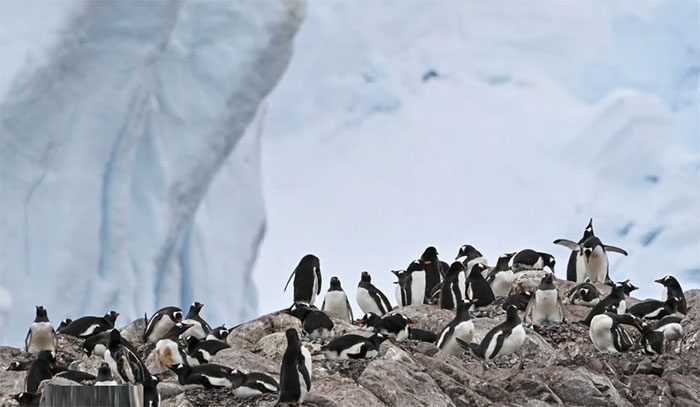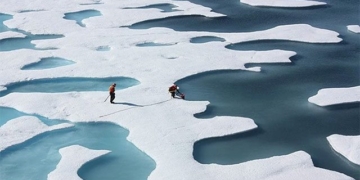Researchers are seeking answers to the question following last month’s expedition that discovered at least 532 dead Adelie penguins, with the actual number potentially reaching into the thousands.
Could avian influenza be the cause of the deaths of thousands of penguins in Antarctica?

Penguins in Paradise Bay, Gerlache Strait, Antarctica. (Photo: AFP/TTXVN).
Federation University Australia has made this announcement, indicating that researchers are suspicious that the H5N1 avian influenza virus is the cause of the penguin deaths, with accurate results expected in the coming months after conducting scientific tests.
Scientists are particularly concerned that the H5N1 avian influenza virus could kill endangered penguin species and other wildlife in the remote regions of Antarctica.
This virus has rapidly spread among wildlife since it was first detected in South America in 2022 and quickly reached Antarctica, with the first reported case occurring in February of this year.
Wildlife biologist Meagan Dewar from Federation University Australia, who participated in the expedition, believes that this could significantly impact wildlife already affected by climate change and other environmental pressures.
According to Dewar, the dead Adelie penguins were found on Heroina Island in a frozen state at sub-zero temperatures, covered in snow.
Dewar and her research team were unable to count all the penguin carcasses on such a large island and estimated that there could be several thousand more that died following their expedition.
Heroina Island hosts approximately 280,000 breeding Adelie penguins each year.
Dewar’s expedition team discovered H5 avian influenza strains in skua seabirds—predatory birds that eat eggs and chick penguins—on the Antarctic Peninsula and three nearby islands.
According to the British Antarctic Survey, about 20 million pairs of penguins breed in Antarctica each year, including the emperor penguin, which scientists fear may become nearly extinct by the end of the century due to climate change leading to melting ice.
The melting ice has caused thousands of emperor penguin chicks to drown in 2022.
Dewar suggests that emperor penguins currently face an increased threat from the avian influenza virus, a danger that may persist into next spring.




















































